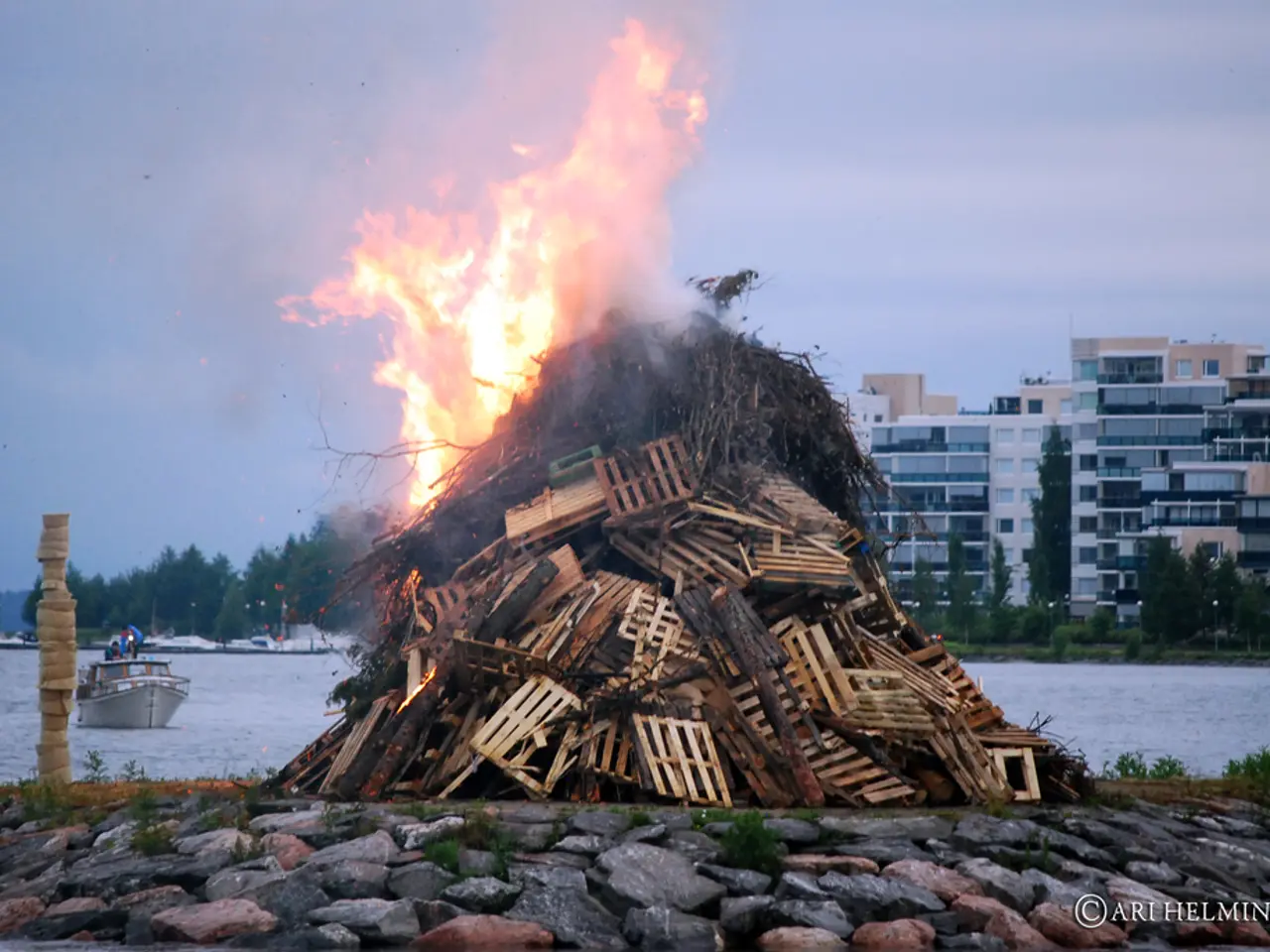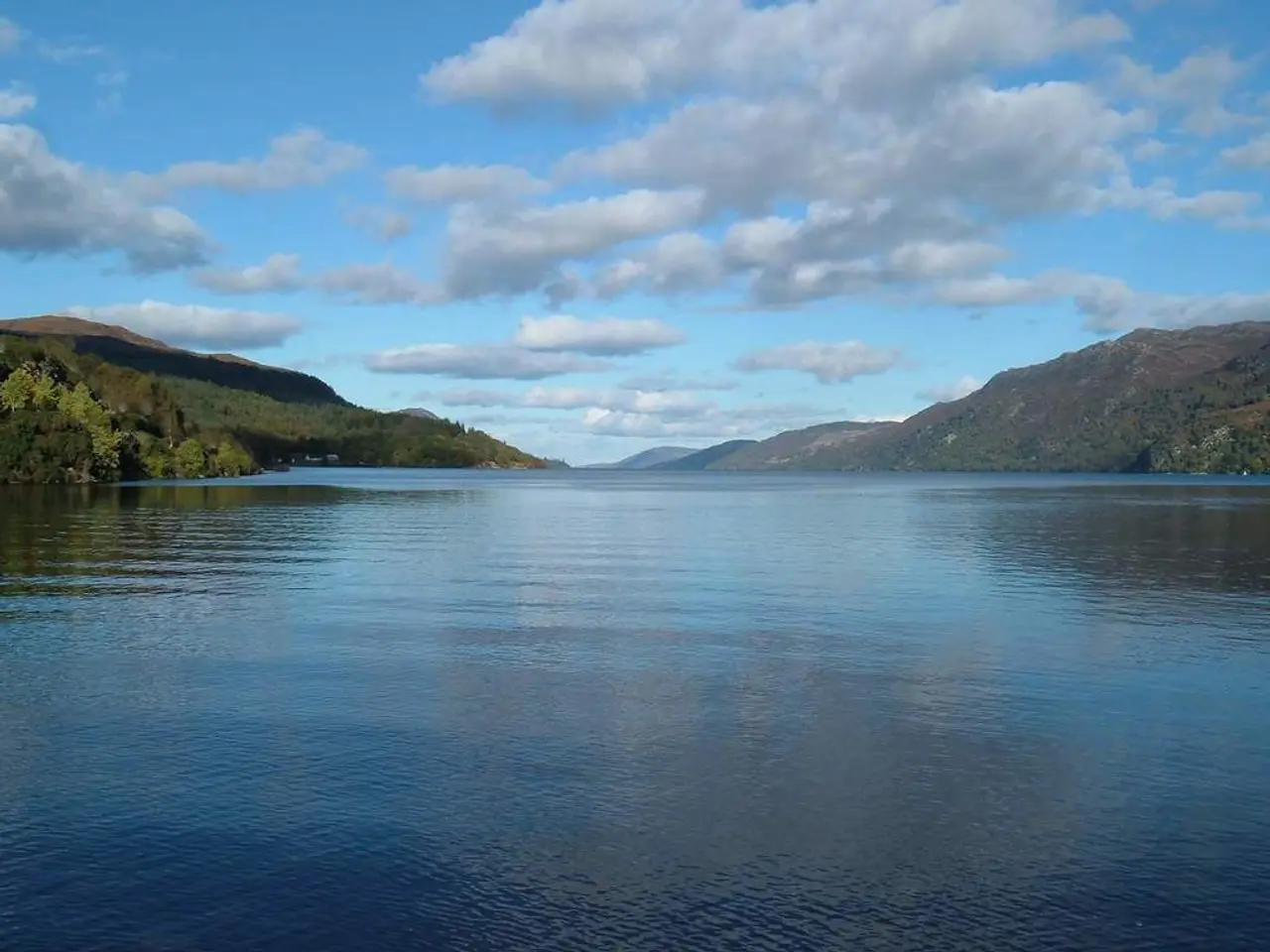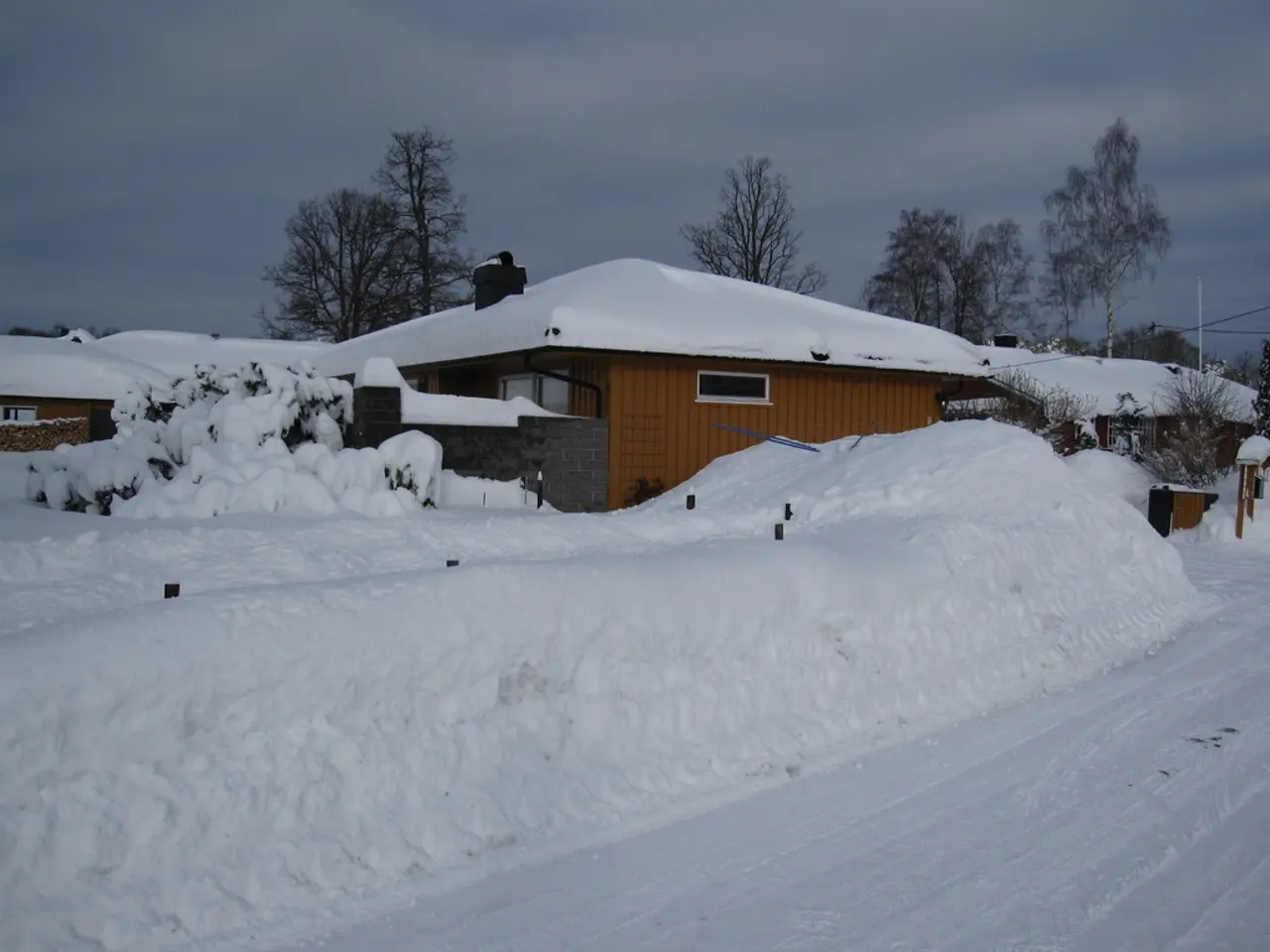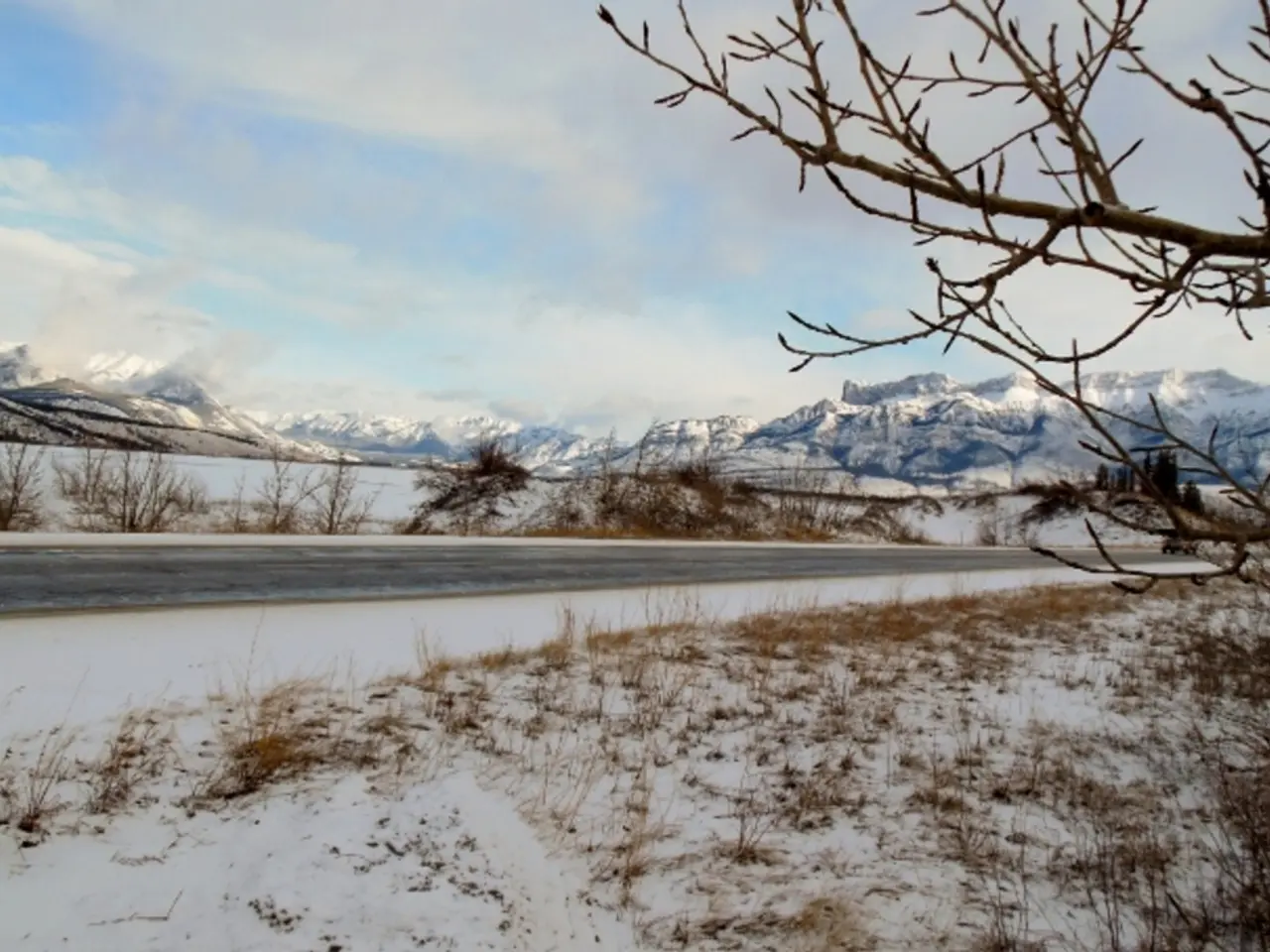Portugal Experiences Three Intense Wildfires During Sweltering Summer Heatwave
Wildfires Ravage Northern Portugal: Climate Change Fueling Crisis
Three wildfires are currently ravaging parts of northern Portugal, particularly in Arouca, Ponte da Barca, and Penamacor. These fires have been significantly impacted by extreme weather conditions associated with climate change, causing prolonged heatwaves and droughts that have made forests extremely flammable.
The wildfires in these regions started in mid-July, with Arouca and Ponte da Barca seeing fires erupt first. The blaze in Arouca forced several dozen communities to evacuate, including Fornos de Carvão, and closed popular natural areas. The fire near Ponte da Barca has burned almost 2,000 hectares and caused evacuations.
In Penamacor, fires have spread into residential neighborhoods, causing worries about possible structural damage. Reports indicate gas cylinder explosions and potential property losses. The extent of the damage in Arouca and Penamacor is still being determined, but it is clear that substantial forest loss has occurred.
The Peneda-Geres National Park fire has also destroyed around 2,000 hectares and forced the evacuation of villages such as Ermida, Froufe, and Parada do Lindoso.
Portugal has organized a substantial response to fight the fires, deploying dozens of vehicles and 26 firefighting aircraft, including 12 waterbombing aircraft. Spain has also lent a hand, sending four water-carrying aircraft to assist in the firefighting efforts, primarily in Peneda-Geres.
More than 1,300 firefighters are battling the flames in these regions, but the extreme weather conditions have made containment difficult. The high temperatures, reaching up to 40°C in some districts, and dry, windy conditions have fueled the flames.
Experts and authorities attribute the increased frequency and intensity of these wildfires largely to the effects of climate change, which is causing longer, hotter drought periods and more extreme weather patterns that elevate fire risks in Portugal. The National Authority for Civil Protection noted that while wildfires are common in Portugal during summer, climate change is making droughts and fires more frequent and severe.
In a grim reminder of the impact of the fires, 20 people, including 14 firefighters, have received minor medical attention. A firefighting vehicle overturned on the A3 highway at Ponte da Barca, wounding five people non-seriously.
Prime Minister Luis Montenegro visited emergency service headquarters to supervise activities, and evacuees have taken sanctuary in nearby churches. The Paiva Walkways and suspension bridge, popular tourist destinations, have been closed due to the fires.
In the larger context, 2025 has seen nearly double the average area burned by wildfires in the European Union over the past five years, with Portugal experiencing its annual average burned area but under very challenging conditions partially driven by climate influences.
Climate change is blamed by experts for these conditions, as it has exacerbated heat waves throughout the Mediterranean. Authorities in Ponte da Barca have warned the public to exercise caution due to the high risk of fire.
In Arouca, local tourism, an important economic area, has been harmed by the closure of the Paiva Walkways. The authorities are urging visitors to postpone their trips and support the region when it is safe to do so.
As the fires continue to rage, the people of Portugal and its visitors are reminded of the critical role climate change plays in increasing wildfire severity and challenging firefighting operations. It is a battle that will require continued vigilance, cooperation, and resources to overcome.
[1] Portugal Wildfires: Climate Change Fueling Crisis
[2] Portugal Wildfires: Extreme Weather Conditions Exacerbate Crisis
[3] Portugal Wildfires: Firefighters Battle Blazes Amid Extreme Conditions
[4] Portugal Wildfires: Environmental Science and ESG Implications in Climate-Change Mitigation Efforts
As wildfires continue to ravage regions in Portugal, the urgency for sustainable practices and environmental reporting becomes increasingly apparent. The link between the increase in wildfire intensity and frequency, as well as the destruction of vital ecosystems like the Peneda-Geres National Park, highlights the importance of integrating environmental science into ESG (Environmental, Social, and Governance) reporting. By tracking and addressing climate change and its effects on weather patterns, organizations and NGOs can contribute to the prevention and mitigation of such crises.
[5] Portugal Wildfires: Climate Change Impact on Weather Forecasting and Sustainability
Accurate weather forecasting is crucial to preventing wildfires and mitigating their effects. Climate change, with its prolonged heatwaves and droughts, presents challenges for weather forecasters. By implementing advanced environmental science and sustainability measures, meteorological institutions can improve predictions and adapt to the changing climate, reducing the risks associated with wildfires and saving lives and properties. In this context, it is essential for governments, NGOs, and the private sector to invest in science, technology, and education to ensure the sustainability and resilience of future generations.








